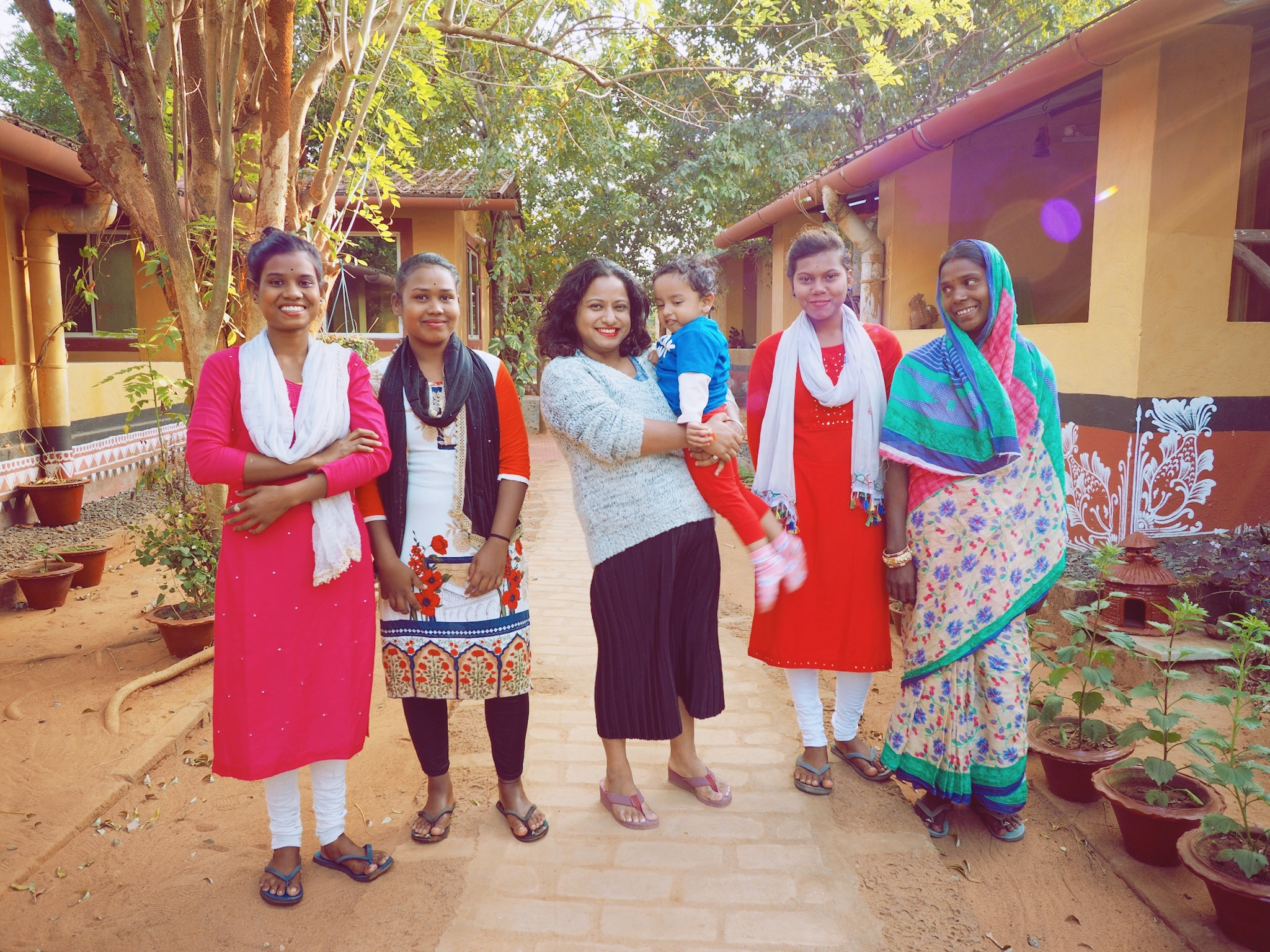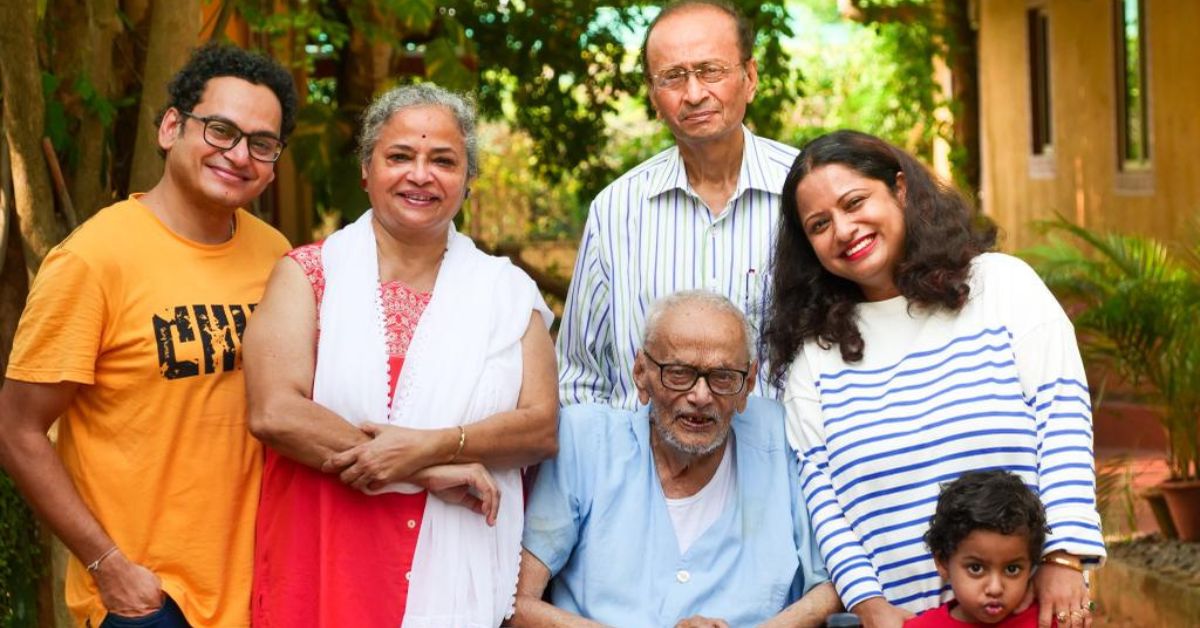It’s early morning, you are just about to wake up when you hear a knock on the window. You wonder who that could be. When you open the door and peep out, you find a little black bird staring right at you.
“This is how our guests at the Svanir Wilderness Ecostay are welcomed every morning,” says 37-year-old Indrani Chakraborty, who runs this eco stay along with her husband, Soumya Mukherji.
A 40-minute drive from Bhubaneshwar, Odisha, you will find yourself in this green haven. With over 3,500 big and small trees on the property, you are sure to find ways to disconnect from all the hustle-bustle of city life and reconnect with nature.
“You will be welcomed by various hues of green as you enter this property. It offers you the perfect excuse to put your devices away and look at what surrounds you,” she tells The Better India.
A Guwahati girl in Delhi

Indrani describes herself as a ‘Guwahati girl,’ who reluctantly stayed in the National Capital for a while, before coming back and settling down in a village called Dalua. “Staying in Delhi was overwhelming for us. We had no time for each other and were always so busy running after deadlines and commitments,” she says.
“While the money was great we never felt at peace when we were working there,” adds Soumya.
The idea of coming back to Bhubaneshwar struck when Soumya’s father decided to sell a plot of land he had purchased years ago. “Baba (father) was looking to sell the plot so we could buy a property in Delhi. However, we were sure of not wanting to settle there. This provided us with the perfect reason to come back to our home,” he adds.
Soumya was working for a travel agency and was noticing a visible shift in people’s travel plans. “More and more urban travellers were seeking out niche homestays and places that were offering exclusivity and something different. We decided to build on that and create an eco stay in the plot of land we had at our disposal,” he says.
So, in 2016, Soumya resigned from the existing job and moved to Bhubaneshwar. On why they named their eco stay, Svanir, Indrani says, “Svanir is a Sanskrit word which means ‘Our own nest’. ‘Sva’ means ‘Own’ and ‘Nir’ means ‘Nest’ or ‘Home’.”
With the help of his father, G B Mukherji, they started working on the plot. What’s interesting is that each design element has been thought out by the duo. They did not even engage the services of an architect for the same.
For two years, the father-son duo worked on building the property, while Indrani continued to work. By 2018, Indrani too joined them in a staggered manner. While the eco stay was ready to welcome guests back then, cyclone Fani struck. “The entire soft furnishing that we had in place was destroyed. The tin roof went flying. All the trees fell and it took us almost one year to rebuild it all,” she says.
By December 2019, Svanir was ready once again to welcome guests and in March 2020, COVID-19 struck.
Nevertheless, the couple has worked hard in making the eco stay truly welcoming.
A homestay like none other
Itishree, a guest who visited the property in May 2022, wrote on social media, “Amidst the natural surroundings, great people, tasty and healthy food. It is well connected to the city but far away from its hustle and bustle. The elephant resistance walls also made us feel very secure within the property.”
The homestay is spread over one acre of the plantation where four large cottages have been built for guests to enjoy. “We have used only locally available material and mimicked traditional tribal architecture to provide our guests with an ideal getaway. All our cottages have their own sit-out veranda with large windows,” adds Soumya.
Earthy tones and beautiful hand-painted walls are what you will see once you enter the premises.
The bottom wall of the cottage features Santhal art, which depicts a range of motifs, from people to wildlife, and the sun and moon. On the one-acre property, mango, guava, chikoo, pomegranate and custard apple trees grow in abundance.
“We have also planted several Singapore cherry trees for the birds to feed on. We did not want to keep grains and fruits for them but wanted to make it as natural as we can for the birds,” she adds. The beauty of the ecosystem is truly magical. “Even on just one acre we have managed to create that beauty,” she adds.
Keeping the environment in mind, rainwater harvesting systems have been put in place.
“We have also installed greywater water harvesting systems, wherein the water from the bathrooms goes directly into the garden. We have also included drip irrigation, which reduces water usage. The bathrooms also deliberately do not have showers. We provide our guests with a bucket and mug for their bath,” she says.
Besides this, what the guests seem to enjoy is the food that Indrani whips up. “I love cooking for our guests. It is also a great stress buster for me. Each meal that we serve is curated and prepared by me. Besides the Bengali fare I am also experimenting with Korean cuisine and can vouch for the fact that my Chinese is the best,” she says.
‘Every guest leaves us enriched.’
The couple says that with each guest that visits them their energy levels are pumped up. “We are always left feeling so enriched when we have guests visit us. Each conversation that we have with them is a way for us to learn something new. Not just us, even our three and half-year-old son has started enjoying the time spent with our guests,” she says.
“At his age, he can identify the various trees and birds we have on the property. What he enjoys the most is just rolling in the mud,” says Indrani with a laugh.
So far, they have welcomed over 60 families to Svanir and are looking forward to many more as the tourist season is just beginning in the state. Indrani also gives credit to her 66-year-old mother-in-law, Gouri Mukherji, who has been a huge support. She says, “She is constantly helping me in the kitchen when guests are around. She is like a strong pillar, supporting us every time we get demotivated. She is my hero.”
There are currently six families from the neighbouring village who are associated with Svanir in various capacities. Indrani also shares with pride that all of them, barring one gardener, are women employees.
“Svanir is a labour of love. It is an extension of our home. We want guests who understand and respect this to visit us. Please come to reconnect with each other and go back feeling recharged and rejuvenated,” the couple says.
For more details, click here.
(Edited by Yoshita Rao)
If you found our stories insightful, informative, or even just enjoyable, we invite you to consider making a voluntary payment to support the work we do at The Better India. Your contribution helps us continue producing quality content that educates, inspires, and drives positive change.
Choose one of the payment options below for your contribution-
By paying for the stories you value, you directly contribute to sustaining our efforts focused on making a difference in the world. Together, let's ensure that impactful stories continue to be told and shared, enriching lives and communities alike.
Thank you for your support. Here are some frequently asked questions you might find helpful to know why you are contributing?

